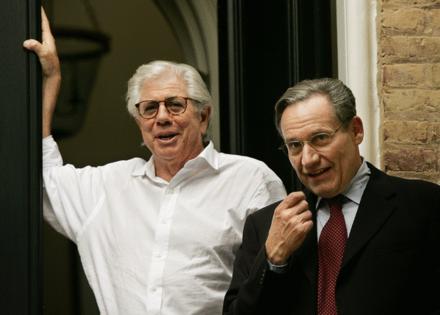Heidi Stevens: When newsrooms shrink, so does our capacity to know and understand one another
Published in Lifestyles
In my son’s high school journalism class a few months ago, the teacher introduced them to “All The President’s Men,” the Oscar-winning film about Watergate, based on the explosive book by Bob Woodward and Carl Bernstein, the Washington Post reporters who took down President Richard Nixon and forever changed American history and journalism.
My son was unimpressed.
I don’t blame him, really. The film was released in 1976. It’s heavy on procedure and light, by modern standards, on action. The actors use pay phones. I might have chosen 2015’s “Spotlight” if I were in charge of getting a room full of high schoolers excited about the power of the press.
Still, I’m glad he glimpsed that moment in time — one that had no parallel before or since. And one that, I’m afraid, could never happen now.
It’s important, obviously, to understand Watergate, an event that shaped and shifted American politics and, indeed, America. I’m grateful he got that lesson. But I’m also grateful he got a look at a time when American discourse and American opinion could be swayed by the facts in front of them.
Because America back then was, for the most part, looking at the same set of facts in front of them.
In 1974, three networks — ABC, CBS and NBC — owned the evening news, and daily newspapers were still the primary source of news and analysis for people. In 1974, the number of people who said they had “a great deal” or “a fair amount” of trust in newspapers, TV and radio was close to 70%, according to Gallup polling.
By 2024, that percentage had shrunk to 31.
Some of the mistrust plaguing mainstream media is self-inflicted, to be sure. The industry has long been too homogenous, too insular and too slow to evolve. You likely have your own “too” to add to that list.
A healthy dose of that mistrust, though, is being fed to us by corporate conglomerates, crooked politicians and other folks with a vested interest in hoarding power and keeping knowledge and truth away from the masses.
And it’s working. More than 3,200 newspapers have closed since 2005, according to Northwestern University’s Medill Local News Initiative. More than 200 counties across the country don’t have a single news source, Medill found, which means entire communities have no one chronicling and illuminating their lives.
The same week I was writing this, my former employer — The Chicago Tribune — laid off 10% of its remaining newsroom staff, which had already shrunk precipitously since I joined in 1998 and left in 2021.
Who’s to blame? The aforementioned mistrust, for sure. Corporate greed and mismanagement, definitely. But also shifting consumer habits. Outdated business models. The disappearance of classified ads. Our phones.
It took a village to dismantle mainstream media.
But now the village is less connected than ever.
What we’re left with is an increasingly fractured and polarized media landscape that means voters arrive at polls, families arrive at dinner tables, neighbors arrive at block parties, students arrive in classrooms, colleagues arrive in workplaces and parishioners arrive at houses of worship with a vastly different set of news and narratives in their heads.
This isn’t all bad. Stories that were going untold, voices that were long ignored, perspectives that went unexplored fill some of the spaces that opened up when the too homogenous, too insular, too slow to evolve publications started to shrink.
But the situation is certainly not good. It’s not good for getting to know each other. It’s not good for understanding each other. It’s not good for creating and cultivating a collective conscience — one that knows and believes our fates are intertwined and our communities are connected and suffering serves no one. And, as Robin Wall Kimmerer reminds us: All flourishing is mutual.
It’s not good for popping the bubbles we sometimes place ourselves in. The bubbles that tell us we’re safest when we stay away from people who don’t look like us or love like us or worship like us. The bubbles that tell us those people don’t deserve our protection. Don’t deserve our advocacy. Don’t deserve our grace. Don’t deserve our hearts.
When I used to walk into Tribune Tower, greeted by soaring ceilings and marble walls etched with inspiring quotes, the words that always stopped me were from playwright Arthur Miller: “A good newspaper, I suppose, is a nation talking to itself.”
So many of you take the time to write and tell me, week after week, what you think of my words. Sometimes you hate them. Sometimes you hate me. But then sometimes you read something that complicates that. My politics don’t match yours, but you appreciated that tribute to my friend’s dad. I’m all wrong about the president, but you had similar feelings dropping your kid at college. My hair is horrendous, but you also bought your Christmas tree at Costco.
That’s what happens when we read and watch and listen to things that aren’t pre-set to mirror our tastes and our belief systems. When every voice that enters our head isn’t echoing and amplifying what’s already in there. When we turn a page and see a take we loathe, next to a take we love. That’s what happens when a nation talks to itself.
I hate to see that go. For me, a newspaper softie and a journalism romantic. But, honestly, for all of us. We do so much better when we stop and listen to each other’s stories.
©2025 Tribune News Service. Distributed by Tribune Content Agency, LLC.
























Comments